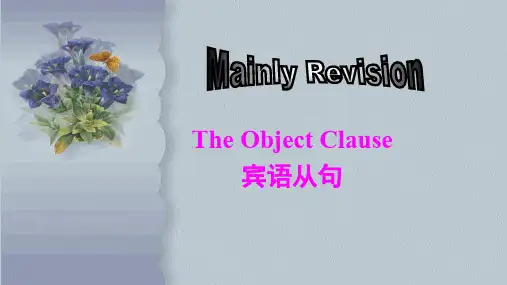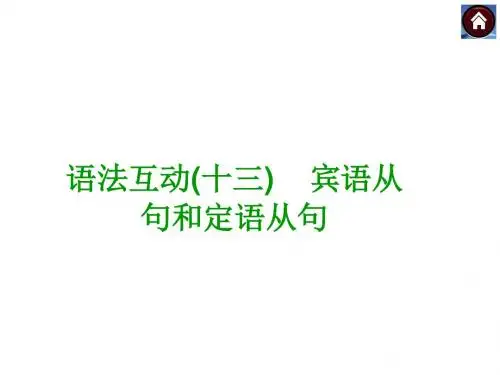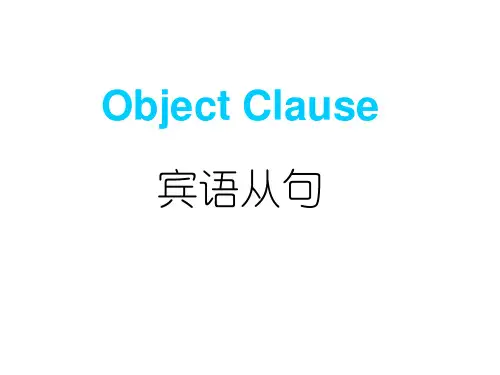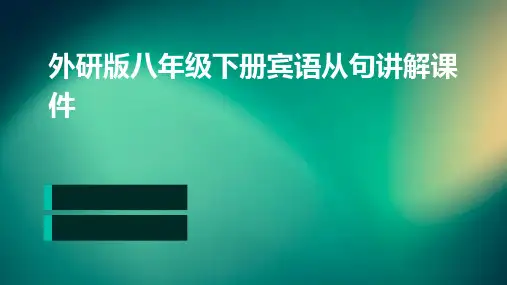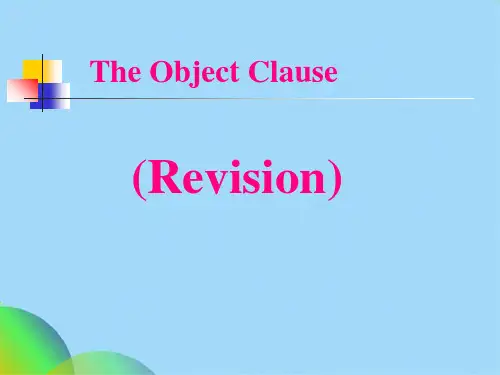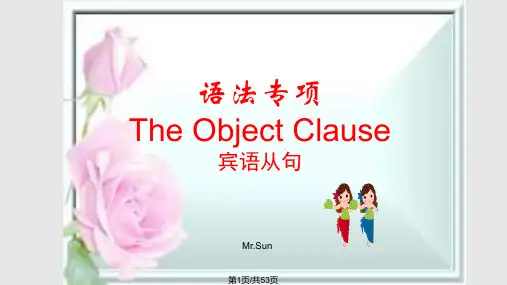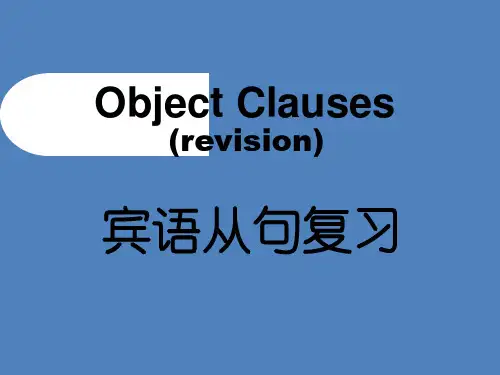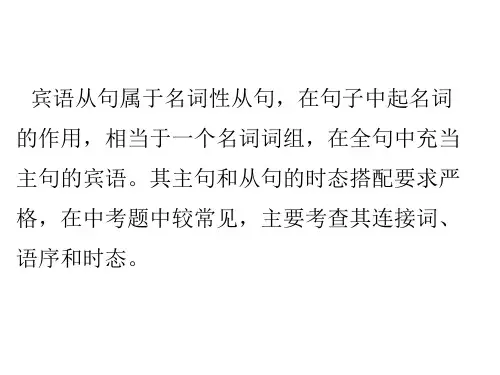(1)当主句是现在的某种时态,从句可根据实
际情况而定。
(2)当主句是过去的某种时态,从句通常使用
过去的某种时态。
(3)从句表示客观真理或事实时,主句即使用
过去时,从句仍然用一般现在时。
(3)What's wrong with…?在宾语从句中语序
不变。如:
I want to know what's wrong with you.我想知
I don't know whether or not they will come.(不
说:I don't know if or not they will come.)我不
知道他们来不来。
(3)特殊疑问句的引导词用特殊疑问词 ①连接代词who, whom, whose, what, which, whoever, whatever在句中有词义,并且充当从 句中的主语、宾语、表语、定语。
பைடு நூலகம்
如:
I wonder what he's writing to me.(宾语)
我想知道他正在写什么给我。
He can't decide which sweater he should buy.(定语) 他不确定他该买哪件毛衣。 ②连接副词where, when, how, why在句中有词 义,并且充当从句中的状语。
said.
恐怕你没理解我的意思。
(3)作介词的宾语。如:
He was deeply displeased by what had occurred
that day.
那天所发生的事情令他非常不高兴。
宾语从句的引导词 (★☆☆) (1)陈述句的引导词用that that在从句中无词汇意义,不充当句子成分, 在口语中常可省略。但that引导的宾语从句作 except, in, but, besides等少数介词的宾语时that 不能省略。如: I know nothing about him except that he is from
